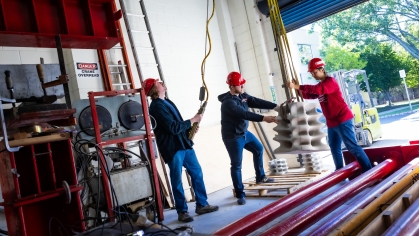Our department offers a comprehensive undergraduate curriculum resulting in a Bachelor of Science degree in civil engineering. The degree requires 128 hours of coursework that includes focused courses and electives. Students can also pursue concentrations in areas that include structural engineering, transportation engineering, construction management, geotechnical engineering, and water resources and environmental engineering.
Use the drop down menu at left to navigate through course descriptions, requirements, and advising.
